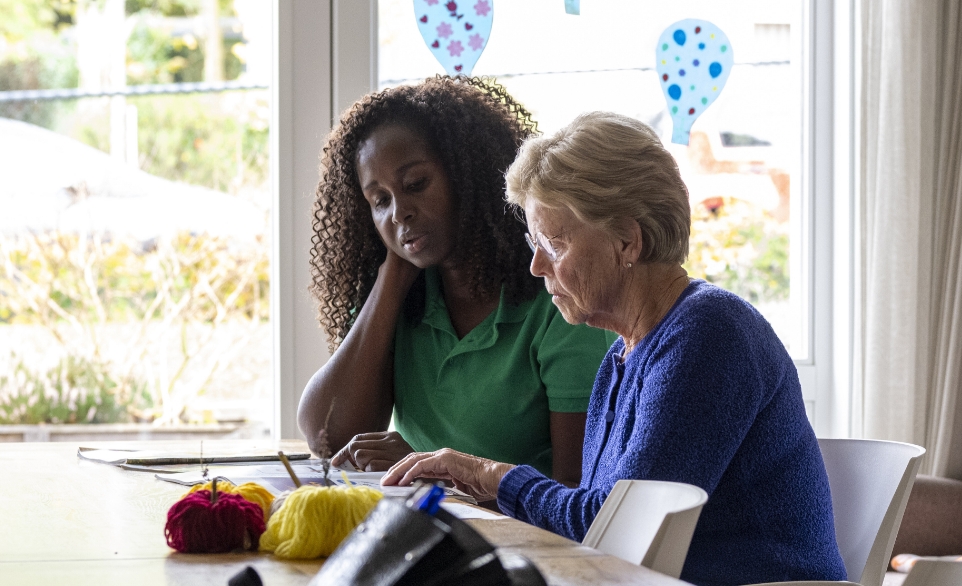
Note: This article is not written by a medical professional. If you’re struggling with your mental health or emotional wellbeing, please speak to your GP, a licensed therapist, or a mental health support service. You are never alone — and professional help is always available.
In care work, it can feel like there’s never time to pause.
You’re expected to keep moving — from house to house, task to task, person to person. You’re the comforter, the problem-solver, the planner, the emotional anchor.
But here’s the truth no one talks about enough:
The best carers aren’t the fastest — they’re the most present.
And presence requires pause.
This blog is about reclaiming the pause. Not as laziness or luxury — but as a powerful, practical tool that makes you more effective, more grounded, and more resilient.
If you’re feeling rushed, reactive, or on the edge of burnout — this one’s for you.
What Does It Mean to “Pause”?
A pause can be:
- A deep breath between visits
- 60 seconds in your car before you knock on the door
- A few quiet minutes after a difficult conversation
- A silent cup of tea with no phone, no noise, no demands
- A mental check-in at the end of a long shift
Pausing doesn’t mean stopping everything. It means creating space — to reflect, reset, and respond with intention rather than exhaustion.
Why We Forget to Pause
In care work, urgency is everywhere:
- A client needs you
- A colleague is running late
- The system is short-staffed
- Your phone won’t stop buzzing
So we adapt. We rush. We absorb stress like sponges.
And somewhere along the way, we forget we’re allowed to slow down — even if only for a moment.
But rushing all the time doesn’t make you better at care. It just makes you less able to care well — for others and yourself.
The Science of Slowing Down
Your brain and body aren’t designed to be “on” all the time.
Even a 60-second pause activates your parasympathetic nervous system — the part responsible for:
- Reducing stress hormones
- Lowering your heart rate
- Improving emotional regulation
- Increasing focus and clarity
In other words? Pausing resets your internal system — so you can approach the next client, shift, or challenge with more capacity and care.
What Happens When You Pause
Even a small pause can:
- Stop you from snapping at a colleague or client
- Help you avoid mistakes due to rushing
- Give your nervous system time to calm down
- Help you respond with empathy instead of reactivity
- Give you back ownershipof your day
Pausing reminds you:
You are not just a body getting through tasks.
You are a person — with needs, limits, and value.
How to Build Pause into Your Care Routine
You don’t need an hour. You need intention.
Here are 6 micro-pause practices that take 5 minutes or less:
- Pre-Shift Pause
Before you begin, sit quietly and set a simple intention:
“Today I will be kind to myself, no matter what happens.”
- Car Reflection Pause
Between visits, take 2 minutes. No phone. Just sit and breathe.
Ask yourself: What am I bringing into the next call — and do I want to?
- Client Transition Pause
When leaving a client’s home, pause at the door. Acknowledge what just happened. Let it go before moving to the next.
- Mini Grounding Pause
Stand still. Inhale for 4. Hold for 4. Exhale for 6. Repeat 3x.
Feel your feet. Come back to your body.
- Gratitude Pause
At the end of your shift, jot down one moment — no matter how small — that reminded you why you do this work.
- Night-time “Let It Go” Pause
Before bed, say:
“The day is done. I did enough. I am enough.”
Let tomorrow take care of itself.
Let Us Help You Pause: Our YouTube Playlist
If pausing feels hard to do alone, we’ve got you covered.
Our Resilient Carers YouTube Playlist is designed to help you stop, breathe, and reset — in real time.
Inside the playlist:
- 2-minute grounding exercises you can do between calls
- Guided breathing sessions for overwhelmed minds
- Gentle reminders that you matter too
- “Unwind after shift” audio for peaceful evenings
- Short reflections to help you reconnect with your purpose
You don’t have to figure out resilience on your own.
Let us walk with you — one pause at a time.
Daily Pause Tracker (Print or Save This!)
Use this to check in and build the habit of pausing:
| Time of Day | Pause Type | Done? |
| Before shift | Pre-shift intention | [ ] |
| Mid-shift | 2-minute reset in car | [ ] |
| After tough visit | Emotional reset & let go | [ ] |
| Before bed | Gratitude + self-kindness | [ ] |
Even 2 or 3 pauses per day can make a huge difference.
Final Thought: Pause Is Not Weakness — It’s Wisdom
In a system that rewards constant motion, choosing to pause is an act of courage.
You’re not lazy. You’re not falling behind.
You’re becoming more present. More grounded. More human.
And in care, being human is the biggest strength of all.
At Resilient Carers, we believe that slowing down isn’t just self-care — it’s professional development. Because a regulated, rested carer is a better carer.
So, give yourself permission.
To stop. To breathe. To reclaim space.
You don’t need to earn the pause — you just need to remember you’re allowed.
If you’re struggling, speak to a medical professional or mental health service. You deserve support just as much as those you care for.













